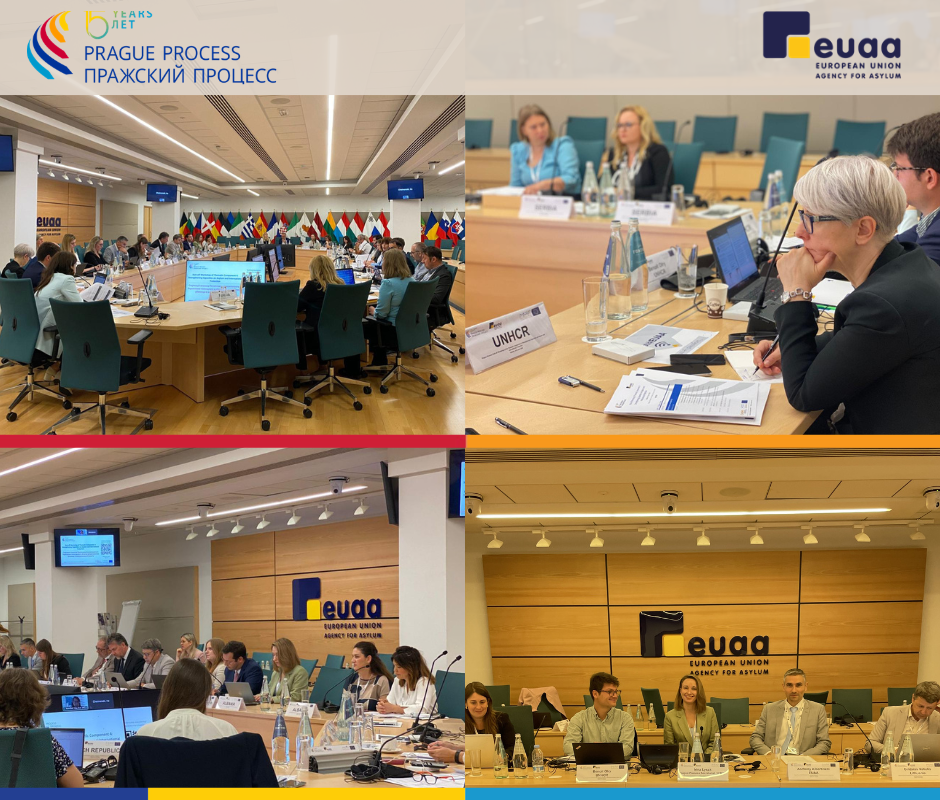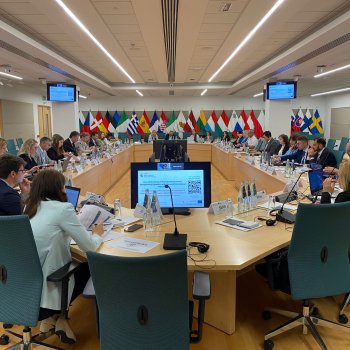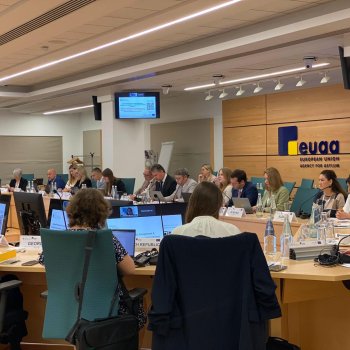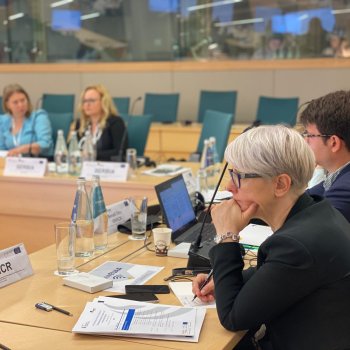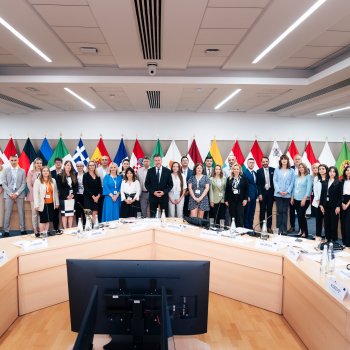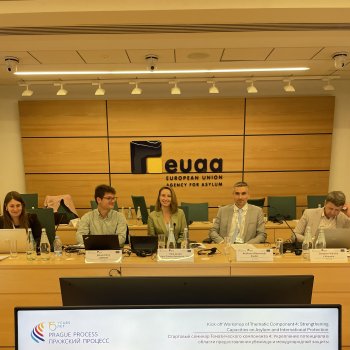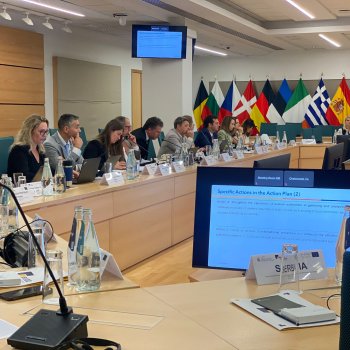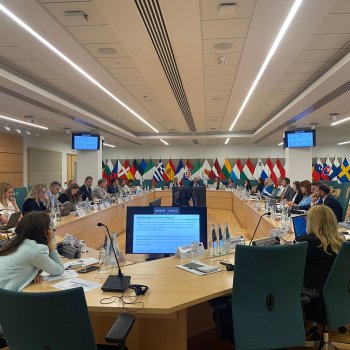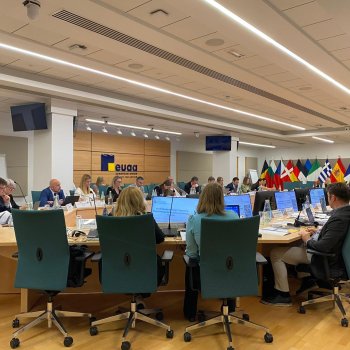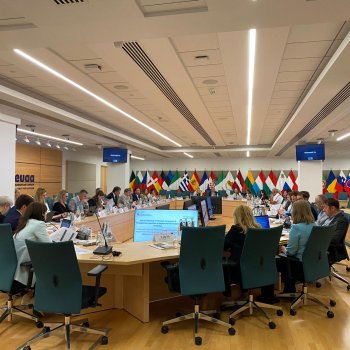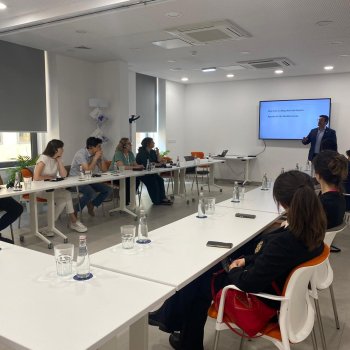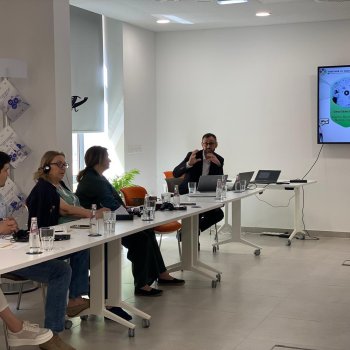On 4-5 June 2024, representatives of 13 Prague Process states, the European Commission, EUAA, Frontex, UNHCR and ICMPD gathered in Malta for the Kick-off Workshop of Thematic Component 4: Strengthening Capacities on Asylum and International Protection. Hosted at the EU Agency for Asylum Headquarters, the workshop provided a platform to discuss capacity-building efforts and emerging trends in asylum management enhancing cooperation and sharing best practices among Prague Process states and partners.
The workshop commenced with opening remarks by Mr. Mikael Ribbenvik Cassar, EUAA Deputy Executive Director, who highlighted the crucial role of the EUAA in harmonizing asylum practices and providing support to both EU and non-EU countries. The EUAA's expertise in training asylum officials, offering evidence-based insights, and building robust asylum systems was showcased as a cornerstone of the agency's mission.
The keynote speakers, including Mr. Arnoldas Abramavičius, Vice-Minister of the Ministry of the Interior of Lithuania, and Ms. May-Ann Ramsay from DG HOME, European Commission, emphasized the importance of collaborative efforts in addressing asylum challenges. They acknowledged the EUAA-Prague Process cooperation agreement signed last year, which has already started yielding tangible results in capacity building and knowledge sharing.
The workshop featured four thematic sessions, starting with an assessment of recent and ongoing asylum trends in Europe and the region, followed by discussions on strengthening national asylum management systems, the importance of timely and reliable information, enhancing cooperation on capacity development, and addressing future challenges in asylum and international protection.
Among others, the EUAA, UNHCR and Frontex aim to enhance resilience of the partner countries’ asylum management systems to tackle crisis preparedness and unprecedented migration flows. The EUAA supports member states in all aspects of the asylum procedure except decision-making within its operational response framework. Following the Russian invasion of Ukraine, the EUAA's operational footprint has expanded significantly. Key initiatives include the Asylum Reserve Pool (ARP) that ensures a swift response to emergent situations, providing robust support mechanisms for affected member states.
Panel discussions featuring experts from the EUAA and UNHCR emphasized the importance of international cooperation and timely data in managing asylum processes. They underscored the need for continuous capacity building and knowledge sharing to address the evolving challenges in the field of asylum and international protection.
Moreover, Ms. May-Ann Ramsay, Senior Expert at DG HOME, European Commission, provided an update on the EU Pact on Migration and Asylum, highlighting its current state of play, the need for comprehensive and cohesive policies across member states, and the critical role of solidarity and shared responsibility in effectively managing migration and asylum processes in the EU.
The workshop concluded with a forward-looking perspective on expanding cooperation between the Prague Process and the EUAA with the strategic focus on supporting Prague Process countries to manage migration effectively. This involves developing national capacities, aligning with EU standards, and fostering mutually beneficial partnerships. The discussions and insights shared during the workshop pave the way for more resilient and effective asylum management systems, better equipped to handle future challenges and ensure the protection of those in need.
On 6 June, after the workshop, participants visited the ICMPD regional office for the Mediterranean (RO MED) to explore the similarities and distinctions between the regions. They then toured the Training Institute on Migration Capacity Partnership for the Mediterranean (MCP MED TI), where they were briefed on course accreditation, Southern partner country involvement, curriculum and trainer development, compliance and quality assurance mechanisms, and the functionality of the learning management system. This visit provided valuable insights and best practices that Prague Process states can leverage to enhance their own migration management and training programs.
Subscribe to the Prague Process mailing list here to keep up to date with the latest developments outlined in our Quarterly Review.

